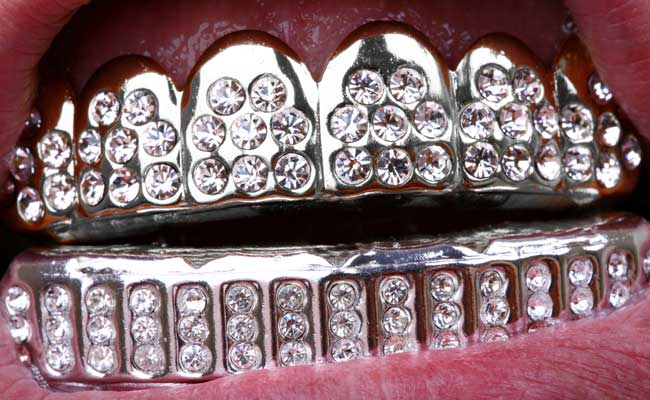By admin
30 Aug, 2017
Dental Health, Dental Hygiene, Dental Tips, General Dentistry, Orthodontics
back to school, dental assistants, dental professionals, dental school, dentists, hygienists
As the calendar turns to August and the summer starts to wind down, parents (with fondness) and children (with dread) begin to think about notebooks, pencils, and new outfits… everything that goes along with Back to School season. But did you know that dentists, hygienists, and dental assistants spend a lot of time thinking about going back to school as well?
Forty-seven states require dentists to complete some amount of continuing education courses before they can renew their licenses. For hygienists, the total is higher still, with 48 states mandating continuing education. (Dental assistants get off a little easier; only 22 states have a minimum continuing education requirement.)
So what exactly are dentists and their teams studying… and why should it matter to you?
Read on to find out more!
In order to ensure that dentists, hygienists, and dental assistants are providing the best possible care to their patients, state licensing boards typically require these professionals to pass an exam to get their license. The certification lasts for one to five years, with two- and three-year terms being most common. Rather than require dental professionals to retake board examinations every couple years, most state licensing boards mandate dental professionals to take a certain amount of credit hours in continuing education to retain their license.
Many organizations provide continuing education courses, including the American Dental Association, dental graduate schools, and other professional dental associations and institutions. All of these organizations must be certified to provide professional-level training before the credits can count towards meeting licensing requirements.
Many states require dentists to include fundamental training in their continuing education—things like CPR and infection control. However, other topics are popular as well. Many institutes offer training in new dental techniques or technology; instruction in specialty dentistry like implants, orthodontics, or endodontics; or how to run their practice more effectively. Hygienists and dental assistants take continuing education classes that provide practical and technical instruction in their roles on a practice team. Courses can take place in person, online, or at special training events.
Why should this matter to you, as a patient?
It matters because when you go to a dentist, you can be sure that you’re getting top quality care from professionals that care enough to stay informed and trained in their field of expertise.
Dentists, like other medical professionals, are committed to the health and well-being of their patients, and continuing education requirements demonstrate that commitment. In fact, if you ask your dentist or hygienist, chances are that they’re not just meeting the requirements of their state dental board—they’re exceeding them!
If you’re curious about new technology in dentistry, new dental techniques, or what your dental care providers are studying, feel free to ask next time you’re in the office. We’ll be happy to tell you all about it.
Make an appointment with us today, and you can be sure you’ll be getting the highest quality dental care. Request an appointment today on our website or by calling the office at 661.952.7865!
More
By admin
15 Aug, 2017
Cosmetic Dentistry, Dental Health, Dental Hygiene, Dental Tips, General Health, Lifestyle, Oral Health
caring for dental grills, dental grills, dental history, gold teeth, grillz

A Brief History of Grills
“I got my mouth looking something like a disco ball
I got the diamonds and the ice all hand set
I might cause a cold front if I take a deep breath
My teeth gleaming like I’m chewing on aluminum foil”
– Grillz, Nelly (featuring Pall Wall & Ali & Gipp)
Grills (or grillz) are, if not popular, at least fairly recognizable these days. Made of precious metals (gold and platinum being the most common) and often studded with diamonds, most grills are removable and worn over the front teeth. But where do they come from?
Although many people would point to Nelly and his 2005 song, “Grillz,” as the starting point for the trend, they’re actually much older than that. (And no, we’re not just talking about rappers like Slick Rick, Flavor Flav, and Big Daddy Kane from the 80s and 90s, either). We’re talking ancient history.
In ancient Italy, between 800 and 200 BC, wealthy Etruscan women wore teeth woven together with gold wire the thickness of a rubber band. The wire held together teeth that had been removed and were placed back into the mouth, so they made eating difficult. The practice wasn’t necessarily common, but archaeologists found documentation of around 20 sets of teeth woven together in this way. Etruscan civilization vanished as the Romans took over Italy, and this fashion trend died with it.
In Latin America, Mayans actually cut small holes into their teeth and filled them with precious stones, typically jade. Again, this was a trend that only royalty and the wealthy could afford. Although the Mayan civilization has disappeared, many people in southeastern Mexico, Belize, Honduras, and Guatemala still wear gold tooth jewelry today.
In ancient Filipino myths, the creator of the world, a deity named Melu, had gold teeth—and during what was the Middle Ages in Europe, Filipinos were filing down their teeth and decorating them with gold. Some of these decorations included gold bands that covered the entire front row of teeth; the oldest date to around 1300 AD.
As the Renaissance began in Europe, dentistry was becoming more scientific and less superstitious—and Giovanni de Arcoli, a 15th century Italian professor of medicine, became the first author known to recommend filling cavities with gold to preserve them.
Grills started appearing in rap and hip hop videos in the 80s, and became even more popular as Southern rap began to take off in the 90s and early 2000s. And now, they’ve jumped into mainstream culture, as celebrities like Madonna, Miley Cyrus, Katy Perry, and even Ryan Lochte have sported them in recent years.
You might expect a dentist to come out against grillz as a health hazard, but no studies have proven that they’re bad for your teeth. As long as they’re removed and the teeth are brushed and flossed as appropriate, they shouldn’t cause health problems. Some metals can cause irritation; if it causes a rash, or bleeding, or other problems, just stop. Similarly, don’t clean them with anything toxic to ingest (like most jewelry cleaners), and don’t try to attach them permanently to your teeth with glue. But if you want to wear a grill, and you use some common sense and take care of your teeth, you’ll be part of a long tradition of dental jewelry.
We can’t recommend a jeweler to create your grill, but if you have any questions about dental instruments—either ornamental or for health reasons—please give us a call at (661) 952-7865 and we’ll be happy to answer your questions.
More
Have you ever watched shows like Lost or movies like Cast Away and wonder how the teeth of these people must feel like after an extended stay on a remote island? Fortunately, there are a few things they (or you, if you go camping or get stranded) can do to help maintain a healthy smile when you don’t have access to a dentist or minty toothpaste.
When you don’t have a toothbrush and floss, the concept of oral hygiene remains the same. Keep food debris from sticking around inside your mouth, and agitate the bacteria so plaque and tartar don’t develop.
In a bind, you can use a clean cloth or part of your t-shirt. Put the cloth on your finger and rub your teeth and gums as you would with a toothbrush. This method is good for minor stays in the wilderness, but won’t provide optimal care in the long run.
Use What’s Around You
In the unfortunate situation you are without proper care for an indeterminate amount of time, you can find or adapt natural tools from your surroundings to clean your teeth.
Chewing stick. Find a tree that has fibrous branches. Break off a toothbrush sized twig. Chew on one end to fray that part of the twig, which can now be used in lieu of an actual toothbrush. As strange as this may sound, a lot of cultures around the world still use chewing sticks for their dental hygiene. Due to the chemical composition of some trees (apple, fig, bamboo, and many more), they can help protect your teeth when chewed on.
Small bones. If you are hunting for food, save some of the smaller bones. They can be used as toothpicks, removing food debris from between your teeth.
Hair. This may seem gross, but if you didn’t bat an eye at small bones, you may as well try this trick too. If you have hair is long enough, you can use it as a substitute for floss.
Water. Rinse with water (sterilized, if possible) to keep your mouth clean after brushing.
Avoid problem foods. Without access to proper dental care, it’s best to avoid foods that can damage your teeth. Try not to eat fruits with a high acidity level, or foods that easily get stuck in your teeth.
Now you know how Tom Hanks kept his smile going stuck on an island for three years. (And you thought it was Hollywood make up artists?) While these options may sound less than appealing, they could be the difference between having healthy or damaged teeth while out in the wilderness. That and no one likes the feeling of fuzzy teeth.
If you’ve just returned from the wild, or if you’d just like to stay up to date on your dental visits, please don’t hesitate to give us a call!
More
By admin
18 Mar, 2017
Dental Health, Dental Hygiene, Dental Tips, General Dentistry, General Health, Lifestyle, Oral Health
cavities, gingivitis, gum disease, plaque, tartar, teeth cleaning
Why do I Need Professional Teeth Cleanings?
Let’s look at five reasons why you should get your teeth regularly cleaned.
1. We check for oral cancer
With cancer, the sooner it’s detected the better chance you have of successfully getting rid of it. Oral cancer is no different. During each teeth cleaning, we check for any signs of oral cancer.
2. Cleanings help prevent cavities
Brushing and flossing every day will do wonders in maintaining a healthy mouth. But, sometimes you may forget to floss, or maybe you had a few too many sodas and candy bars. Our dental hygienists will ensure that your mouth is free of plaque, and can also give you tips for your at-home cleaning if they see something you may not be doing.
3. Cleanings help prevent gum disease
Gum disease can easily creep up on anyone. It is often painless until it becomes a bigger problem. When diagnosed with gingivitis, it can still be reversed with proper gum maintenance.
Once gingivitis progresses to periodontal disease, it requires ongoing professional care to prevent further damage to your mouth. Professional cleanings at twice a year drastically reduce the risk of gum disease ever starting.
4. Having a healthy mouth contributes to a healthy life
Poor oral health has been connected with diagnoses for diabetes, heart disease and pregnancy complications. Keeping your gums and teeth healthy will help prevent the occurrence of these diseases.
5. Regular cleanings are cheaper than taking care of oral problems
Receiving two professional cleanings a year may be an expense you don’t like to see. However, teeth cleanings are much cheaper than other procedures, such as root canals, scaling and root planing, and dental implants.
There is nothing better than a freshly cleaned mouth! Our dental hygienists will make sure you have pain free experience, and you can leave knowing you’ve taken a giant leap forward in maintaining a healthy smile.
If you have more questions about our professional teeth cleanings, or if you’d like to schedule an appointment, please call your Lancaster dentist at (661) 952-7865.
More
Imagine you are eating a big, juicy steak cooked to perfection. You cut out a chunk of steak place it in your mouth. The first bite is delicious, and the second bite is even better.
But then, in your fervor for chewing, you forget where the steak ends and where your cheek begins. Before you know it–chomp!–a bite that was intended for that tasty piece of steak caught your cheek. It’s painful and irritating, but you can get past the pain.
The next day, your wound is healing well, but unfortunately during lunch you bite down on it again. Now it’s official: you have a full blown canker sore. While not all canker sores are self-inflicted, it’s good to know what causes canker sores and some remedies you can implement to promote healing while reducing pain.
For the most part, canker sores are more of a nuisance than a health issue. They can appear on the inside of your lips, cheeks and on your tongue. They can either be caused by trauma (like biting on the inside of your cheek or braces irritating your mouth) or other factors like stress and the types of food you eat.
Avoid agitating your canker sore
- Try not to hit it with your toothbrush.
- Steer clear of foods that will annoy your canker sore, including crunchy, dry, or acidic foods–especially citrus!
- If you have braces, apply wax where the canker sore comes in contact with them. If your braces or dentures continue to cause discomfort and canker sores, your dentist may be able to make the proper adjustments to fix the issue.
Since most canker sores go away on their own, the best thing you can do is manage the pain
- Gargle with salt water. Mix about ¼ to ½ teaspoons of salt with eight ounces of warm water. Put about two to three ounces of water into your mouth at a time and swish it around for 20-30 seconds, then spit it out. Continue to do this until all of the water is gone.
- Consider using a local numbing agent. Products like Oragel can be applied to the canker sore and numb it for temporary relief. These types of products contain benzocaine, so please read all cautions before applying.
- Take over-the-counter pain relief medication, like ibuprofen.
If your canker sore doesn’t heal within a few weeks, it’s time to see a dentist. If your canker sore makes it too painful to eat or drink, consider seeing your dentist before the three week mark. Make an appointment with your local Lancaster dentist if you think you may need additional canker sore treatment.
More





